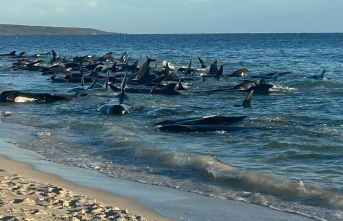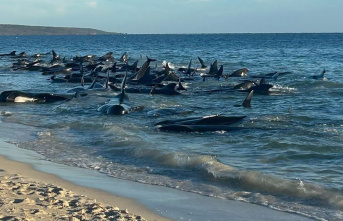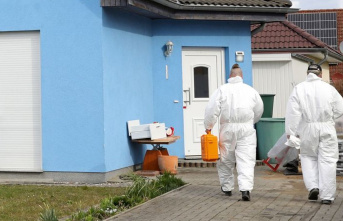Two hydrogen funds are to be created for targeted funding: A development fund with a volume of 250 million euros is to promote hydrogen investments in developing and emerging countries. A growth fund with a volume of 300 million euros is intended to accelerate the global market ramp-up and infrastructure for green hydrogen overall.
"Germany is driving forward the development of climate-neutral energy networks, both nationally and internationally, based on green hydrogen if possible," says Wenzel. "Because wherever we cannot set up the energy supply with renewable, clean electricity and with more energy efficiency carbon-free, we need green hydrogen or its derivatives." The current energy crisis due to the Russian war of aggression is accelerating this development.
"Not only climate change, but also the current energy crisis teaches us all over the world how important it is to develop alternatives to coal, oil and gas," emphasized Schulze. Green hydrogen is "a key technology". The minister pointed out that many developing countries would offer the best conditions for the production of green hydrogen. However, it must be ensured that these are not "excluded from the value chains of the future".
"The new green hydrogen economy must be fairer than the old fossil economy," Schulze demanded. Not only the production but also the use of green hydrogen in developing countries should be promoted. One of the partner countries should therefore be South Africa.
The growth fund is also aimed at German and European companies that are expected to contribute their own capital to the initiative. The new funds and promotional offers are to be managed by the federal development bank KfW. Depending on the situation in the recipient country, some of the funds are to be granted as loans. Wenzel said that by using KfW funds, a total volume of 2.5 billion euros could be generated for development projects.
The ministries involved referred to the wide range of applications for green hydrogen. It can be used as a natural gas substitute for CO2-free steel and metal production or as e-kerosene for air traffic, shipping or heavy-duty trucks. The production of fertilizers from green ammonia is also possible.
Green hydrogen or ammonia are produced using renewable energies (PtX). Water and, for ammonia, nitrogen are available as raw materials in practically unlimited quantities. The process itself does not produce any CO2 emissions. The new funds are also intended to promote the development of transport infrastructure and storage.












